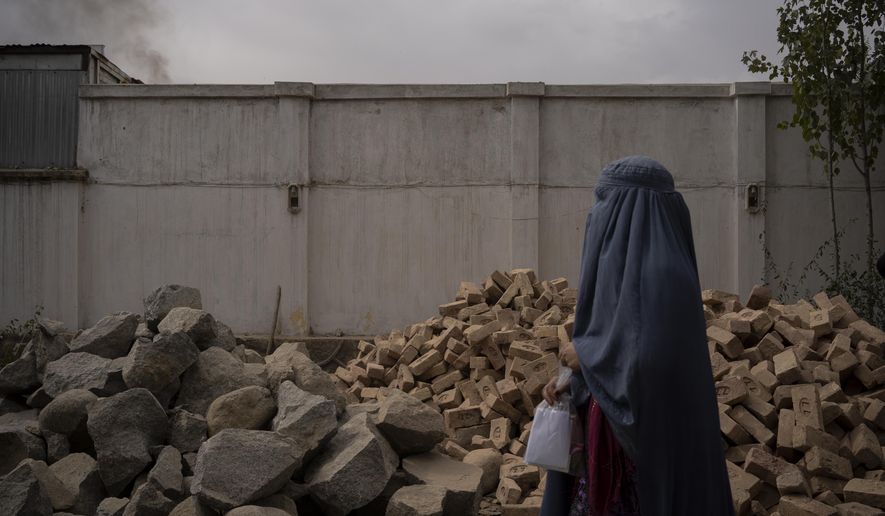Freedom to practice one’s faith “does not exist in Afghanistan anymore” one year after the return to power of the radical Islamist Taliban, an advocate told the U.S. Commission on International Religious Freedom during a Wednesday hearing.
As a result, the country’s culture has been gutted and thousands who can’t escape the Islamist regime daily live in fear for their lives and their futures, participants said.
“Many Afghans … now find themselves living under the archaic, oppressive and unrelenting violent rule of the Taliban,” said Joseph Azzam, board chair of the Afghan American Foundation, who told the panel his family came to the U.S. as refugees in the 1980s, persecuted at that time for their political views, as opposed to their religious ones.
The Taliban reclaimed Kabul in August 2021 after the U.S. military withdrawal helped spur the collapse of the Western-backed government in Kabul. The insurgent movement was notorious for the strict brand of Islamic Shariah law it imposed on the country when it was previously in power before the Sept. 11, 2001, attacks.
Mr. Azza, said conditions for Afghans after the 2021 takeover have “substantially” gotten worse, citing the June 18 attack on a Sikh gurdwara, or house of worship, in Kabul. While hundreds of Sikhs and Hindus have left the country, “not everyone can escape, and those who remain now are living under the rule of the Taliban and must rely on that group for protection,” he said.
USCIRF officials released a report Tuesday detailing what they said was a sharp deterioration in religious tolerance under the Taliban, targeting “minorities, women, members of the [LGBTQ] community, Afghans with differing interpretations of Islam, and Afghans who follow no religion.”
“Despite continued promises to protect all ethnic and religious communities residing in Afghanistan,” the report added, “the Taliban de facto government has been unable to provide safety and security to religious minorities against attacks from” the active Afghan-based branch of the Islamic State terror group.
Fereshta Abbasi, a researcher with the Asia division of Human Rights Watch, said the Sunni Taliban‘s exceptionally strict view of Shariah, a body of Islamic religious law, “cannot be found in any other country with Islamic populations.” Those views include what Ms. Abbasi called a “de facto ban on girls’ secondary education,” a mandated head-to-toe covering of women’s bodies when they’re outside the home, and the prohibition on women traveling or working without a male relative as a chaperone.
These and other prohibitions “also violate the rights of Afghans to live according to their own conception of their religious faith,” Ms. Abbasi said, adding, “The Taliban are failing to protect Afghans religious minorities from violence and are subjecting some groups to persecution,” including the 10% to 15% of Afghan Muslims who are Shiites, a separate branch of Islam.
She said Sufis, Ahmadiyya Muslims, Sikhs and Hindus are also persecuted, while Baha’is, Buddhists, Zoroastrians and Christians “practice secretly or have gone into hiding.”
The State Department should return Afghanistan to its list of “Countries of Particular Concern,” said Anne Richard, a former assistant secretary of state who now heads Afghanistan policy at Freedom House, a human rights group. At the same time, she said, the Biden administration should accept more Afghan refugees, particularly those who worked with American and allied forces during the war and whose special immigrant visa applications have been backlogged.
As the Biden administration calibrates whether and how to work with the new regime in Kabul, Ms. Richard said “it’s very important” that the Taliban not be officially recognized as Afghanistan’s legitimate government. She also called for a more comprehensive travel ban on Taliban officials and “more U.S. government support” to investigate human rights abuses in the country.
The panelists also voiced support for the Afghan Adjustment Act, which would allow certain evacuees from that country to apply for permanent status after one or two years of being allowed into the U.S. as refugees.
• Mark A. Kellner can be reached at mkellner@washingtontimes.com.




Please read our comment policy before commenting.